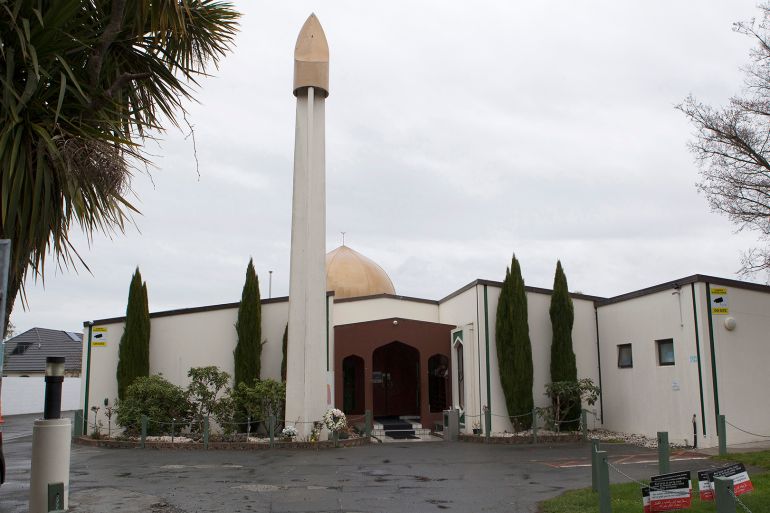Centuries of white supremacism to blame for Christchurch shooting
New Zealanders thought it could never happen to them, but the attack on two mosques had been brewing for a long time.

This time last year, I was working as a legal advocate for refugees here in New Zealand. On the morning of the attack by a white supremacist on two mosques in Christchurch, I had been scheduled to speak to the media about the issue of Syrian refugees and asylum seekers in New Zealand.
March 15 was the anniversary of the start of the war in Syria. Speaking about the Muslim community, I remember saying to the cameras: “We aren’t a scary bunch. Come talk to us. Visit our mosques.”
Keep reading
list of 4 itemsChristchurch, COVID-19: Jacinda Ardern’s years in office
Christchurch attack film slammed over ‘white saviour’ narrative
New Zealand: Surviving a Massacre
And then something unimaginable was unleashed on us. In a horrendous attack on two mosques in Christchurch, a city still recovering from the earthquakes of 2010 and 2011, 51 Muslims were shot dead during Friday prayers and 49 others were injured.
The first I heard about it was through a text message from a friend with three words: “I’m so sorry.” At first, I thought there must have been another bombing in Syria. Even when I saw the shooter’s livestream video, I thought for a split second that it was a video game – not reality. This is New Zealand, after all. This kind of thing does not happen here.
“At least we’re not the US. At least we’re not Australia.”
How many times had I heard these words?
It was not until after this awful, planned attack, however, that I realised: It had been just a matter of time until something like this happened.
Muslims make up just 1 percent of New Zealand’s population. As the hadith goes: “The believers are like one body. When one limb of it aches, so does the whole body.” It never felt as true to me as it did that day.
I visited Christchurch two months after the attack last March. The killer’s plea hearing was under way, and another Muslim lawyer and I attended the hearing in order to support the community. I stopped by Al-Noor mosque, one of the mosques that had been targeted.
I felt like I could still smell the stench of blood. I could imagine people fleeing the mosque, injured bodies being carried to the neighbour’s property for shelter, a sense of grief and terror still hanging in the air.
Those people in that mosque were killed by a single person, fuelled by a heinous, racist ideology.
But it was not an isolated act. It had been brewing.
Two months before the shooting, a man had approached me in a parking lot and said: “A lot of people don’t want you here.”
I have had a group of students shout: “Hey look! It’s a terrorist!” at me.
I have had a man make the shape of a gun with his hand, look me and another friend wearing the hijab in the eye, and mime shooting us in the head.
Ask any Muslim in New Zealand, and most will have stories like this to share.
But it is not just Muslims. Anyone who lives in Aotearoa, the Maori name for New Zealand, knows our history.
The people who live here are settlers on a land soaked in the blood of colonisation.
We have been building lives and communities on the DNA of white supremacy for centuries.
The pain we, the Muslim community of New Zealand, feel today is the same that our tangata whenua – the Maori term for “people of the land” – have felt for decades and continue to feel today.
One year on, Christchurch could happen again. Not just in the United States. Not just in Australia.
The views expressed in this article are the author’s own and do not necessarily reflect Al Jazeera’s editorial stance.
